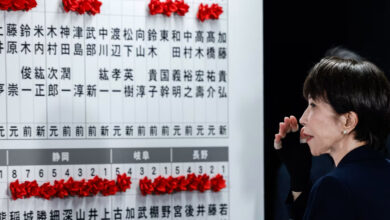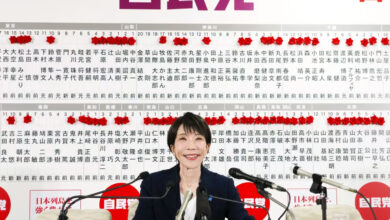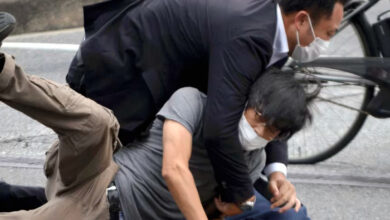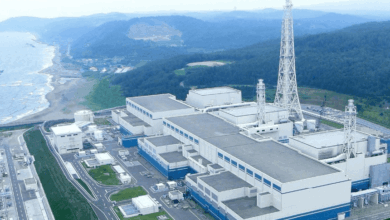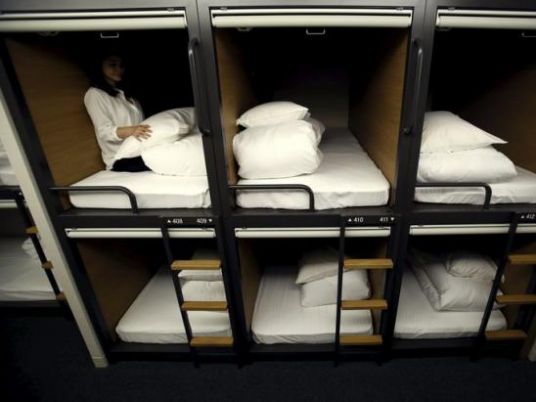
With Japan's tourist numbers and hotel prices on the rise thanks to a weaker yen, developers are getting creative with a new niche line in stylish but cheap accommodation in bunks, cabins and pods of all shapes and sizes.
Even a tiny double room in a hotel with limited service can set you back 30,000 yen (US$240) a night in central Tokyo these days. But if you look a little more, you can bed down in comfort for a mere fraction of that.
Just 10 minutes' walk from Tokyo's famous Akihabara shopping district, an eight-storey white building called Grids stands among office and apartment blocks. The hotel, a conversion of a 34-year-old office building that opened in April, offers rooms from 3,300 yen to about 5,000 yen a person.
A bunk bed in a shared room is the cheapest option, and comes with slippers, a bath towel and a locker and key.
A 12 square-meter standard double with a shared shower and toilet costs just 3,600 yen a person. If you've come with family or friends, the top floor has a 28 square meter premium room with tatami mats on a raised floor where guests can lay out futons for four, costing about 5,000 yen per person.
"Converting an office building into a hotel is an ideal way to respond to the immediate needs for hotel rooms," said Yukari Sasaki, senior managing officer for Sankei Building Co, a property developer for Grids.
"Building a hotel from scratch costs too much money now because of high construction costs," she added.
It typically takes about three years to build a new hotel, while Sankei spent less than a year to open Grids once it started planning last summer.
Sankei has already secured another property for Grids in the Nihonbashi district not far from Tokyo station and is planning to build more in Kyoto and Osaka.
A record 13.4 million foreigners visited Japan last year, partly thanks to the weaker yen. Japan aims to boost that to 20 million by 2020, the year of the Tokyo Olympics, and 30 million by 2030.
Grids, cabins and hours
First Cabin also runs hotels converted from office buildings in six cities nationwide. It charges about 5,500 yen for a "business class cabin" with a single bed and no additional space. That is slightly larger than a unit in one of Japan's famous capsule hotels, but comes with enough headroom for guests to stand up. For 1,000 yen, you can get a "first class cabin" with space to open up a suitcase and change.
First Cabin in Tsukiji, near Tokyo's famous fish market, is a converted office building with a cafe on the ground floor that becomes a wine bar at night. Guests bathe in communal bathrooms large enough for about 10 people.
There are also "nine hours" hotels, based on the notion that people sleep for seven hours and need one hour at either end, at Narita International Airport and in Kyoto.
These feature "sleep pods" which look similar to capsule hotels but are more stylish and claim to have better mattresses.
"Our service is limited to beds and showers," said Takahiro Matsui, chief executive officer of Nine Hours Inc, which runs the hotel. "But we provide the best quality for what we offer."
Nine Hours in Kyoto is a nine-story structure with 125 pods, while the one in Narita occupies one large floor of an office building.
The company plans to open more Nine Hours hotels in the future, Matsui said.
Finally, for those who want a more interactive experience, the Sakura Hotel chain in Tokyo that was built around 2007 organizes tours including trips to see sumo wrestling and visits to sumo stables to watch the wrestlers practice, and it even lays on sushi roll-cooking classes. Room rates vary from 3,000 yen per person for a bunk bed to around 7,000 yen for a single room.
($1 = 120.9000 yen)

